More Articles

Sometimes dinner plans change after you've already thawed out the meat, and you're left wondering what to do. Boneless chicken thaws faster than a whole bird, and its taste is affected more by the loss of moisture that occurs during thawing. Before tossing that boneless chicken back into the freezer without cooking it, consider where the meat was thawed and whether or not it is partially frozen. Chicken can cause foodborne illness if it's not stored correctly.
Loss of Quality
Chicken that has been safely thawed in the refrigerator at or below 40 degrees Fahrenheit is safe to refreeze without cooking, but the meat will suffer a loss of quality once it has been thawed out for a second time. Without the bone or skin to add extra fat and flavor, the loss of moisture will result in dry-tasting chicken. Instead of refreezing, keep the thawed chicken in the coldest part of your refrigerator and use within two days to preserve the meat's quality.
Partially Thawed Chicken
When trying to determine whether or not to refreeze your chicken without cooking, look for signs that tell you how much the chicken has thawed out. Meat that is firm to the touch and still contains some ice crystals can be refrozen with little to no moisture loss. Mark the package with the date, place it in the coldest part of your freezer and use within two to three months. Chicken that is soft to the touch with no visible ice crystals has completely thawed and experienced some moisture loss.
Meat Thawed at Room Temperature
If your boneless chicken was thawed on the counter or left at room temperature due to a power loss or freezer failure, the meat may no longer be safe to eat. Harmful bacteria start to grow in perishable food items, such as chicken, once it reaches above 40 F. While cooking food does destroy these pathogens, after two hours of uncontrolled growth -- or one hour sitting at temperatures 90 F and above -- the food is no longer safe to eat, even with cooking. Refreezing this chicken without cooking it and then using it at a later date will likely make you sick.
Examining Questionable Meat
In the case of accidental thawing, the temperature of where the meat thawed is your first clue to its safety. Use a thermometer to determine if the meat was sitting above 40 F. If your chicken has fully thawed, and the meat has been at room temperature for more than two hours, do not refreeze the meat. Instead, throw it out. Chicken can be unsafe due to harmful bacteria, even if the chicken looks and smells OK. If the chicken was kept at or below 40 degrees F, the chicken is safe to cook and eat. Any meat thawed out fully under suspect circumstances should not be refrozen again after cooking.
Thawing Frozen Chicken
When thawing chicken, do not place the meat on your kitchen counter or leave it at room temperature. The best method is a slow thaw, in the refrigerator. Boneless chicken breast will thaw overnight or within 24 hours. If you're pressed for time, thaw your frozen chicken in a bowl of cold tap water. Cooking meat while it is still frozen results in uneven heating, allowing some bacteria to survive in the poultry where it can cause foodborne illness.
Related Articles

Can I Cook a Chicken Five Days After ...

Is it Safe to Cook Chicken 2 Days After ...

Can I Cook Chicken Two Weeks After the ...

Can I Cook Chicken That's Been Thawed ...

What Does Spoiled Meat Smell Like When ...

How to Defrost a Chicken in a ...
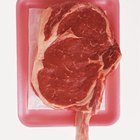
Can You Cook Meat Gone Bad?
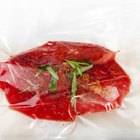
Rules for Thawing and Refreezing Meat

How Long Can Chicken Stay Out Without ...
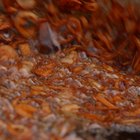
Guidelines For Refreezing
Can You Use Stew Meat That Has Been ...
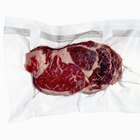
Can You Freeze Meat Twice?

How Long Is Cooked Chicken Good?
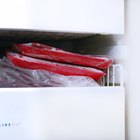
How Long Do You Keep Meat in Freezer?
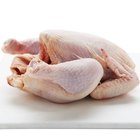
If Chicken Smells Bad Can You Still ...
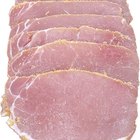
How Do I Tell If Pork Has Turned Bad?

Can I Stop Cooking a Chicken Halfway & ...

Can I Start Marinating While My Chicken ...

Can You Boil the Bacteria Out of ...
Can You Cook Frozen Chicken?
References
- U.S. Department of Agriculture Food Safety and Inspection Service: Danger Zone
- University of Minnesota Extension Services: Refreezing Food
- Ohio State University Extension: Guidelines for Safely Refreezing Thawed Food
- University of Nebraska-Lincoln Food Safety: Is It Safe to Refreeze Raw Meat and Poultry That Has Thawed?
Resources
Writer Bio
For more than 10 years, Carol Butler has run a small, off-grid furniture business with her husband and is a regular contributor to the Edible community of magazines. As staff writer for RichLife Advisors, she covers financial planning and other industry-related topics. She holds a B.F.A. in theater arts.
Photo Credits
Jupiterimages/liquidlibrary/Getty Images